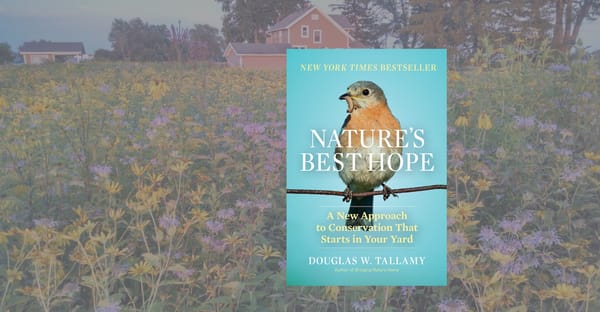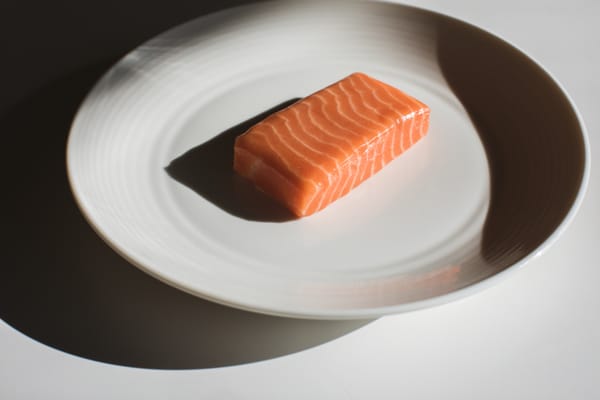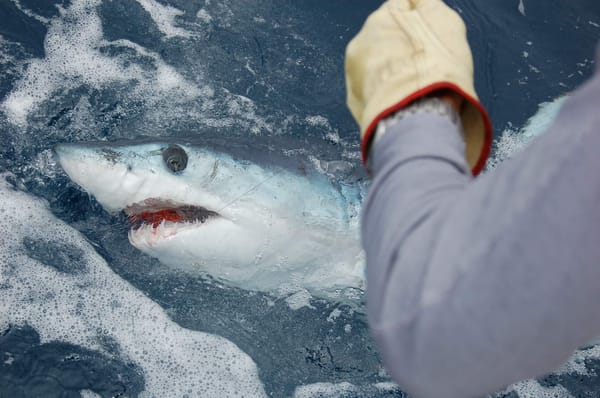Fools rush in: on finding, hooking, and losing a trophy trout
Reflections on an epic face-plant, remembering Bill Walton
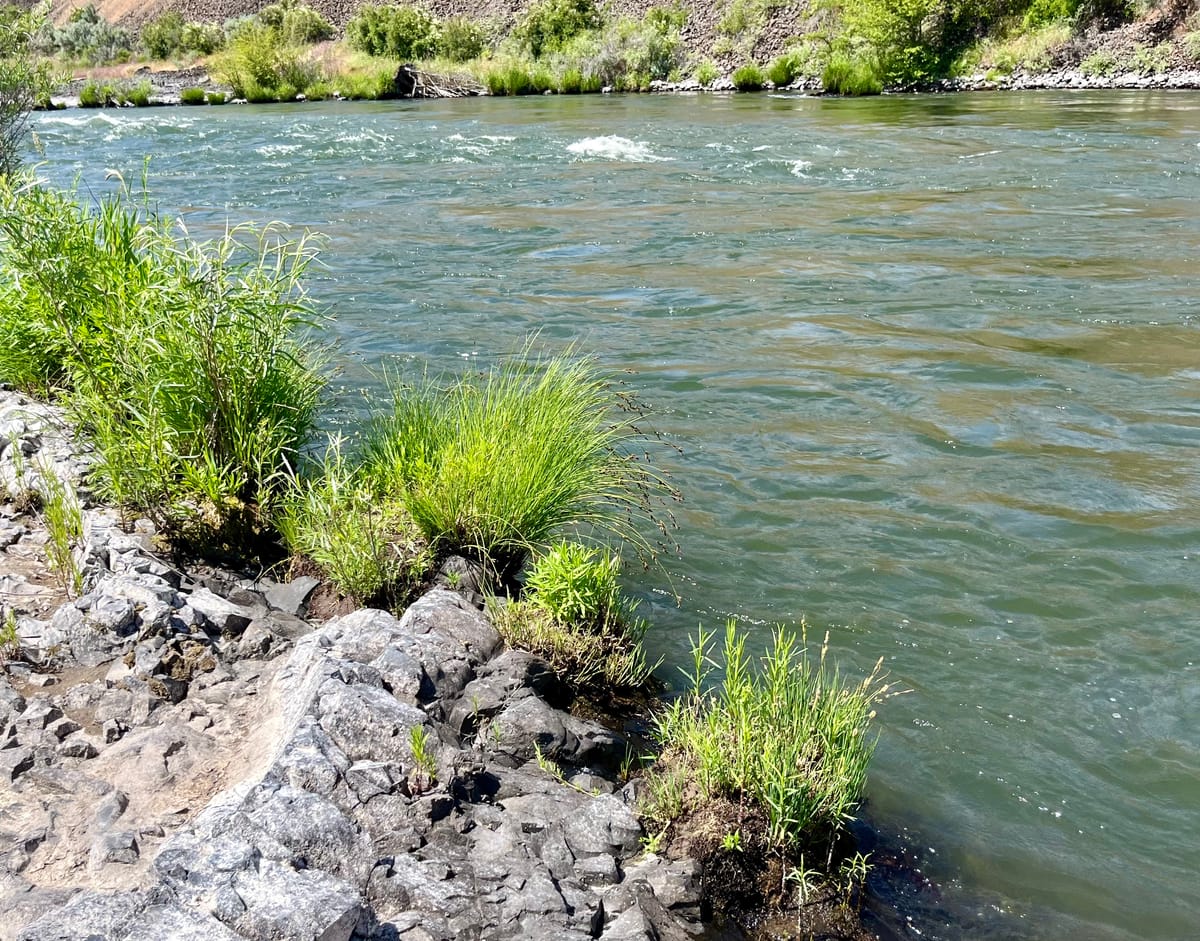

I lost a big, big fish. I had two chances at it, and lost it still.
What's worse? I lost it because I didn't listen to my own advice.
It was advice I had given a dozen times before. It was advice I quoted the mighty John Juracek giving last week in this very space. It was advice I had given that very morning.
Yet I was unable to heed it myself.
Welp.
Another great thing about fly fishing: we get near-immediate feedback.
Sometimes the feedback is delivered with silence. Nothing happens. There isn't a fish. If there was, the drift wasn't convincing enough. The river keeps on rolling. Feedback.
The times that really sting—like this time—the clarity of your failure is incredibly vivid, the feedback is a wallop upside the head.
Meanwhile, in Maupin
We were in lovely Maupin, Oregon all weekend for TroutFest. TroutFest is an annual gathering benefitting the Deschutes River Alliance. DRA is the leading group of activists fighting for the life of the Deschutes river. That work is a story for another time. TroutFest is a few days of respite from the fight.
The DRA programmed a colossal weekend of activities, from a clean-up to a casting contest to a cast-iron cook-off. The community responded. I'd imagine over 100 anglers were in town, including a huge cohort, mostly women, from iFishiBelong. The group was new to me, but very impressive. They were formerly known as United Women on the Fly. Members travelled in from all over the United States for one of their four annual meetups.
We met new friends, re-connected with old pals, and genuinely had a blast. The Takes, featuring the brothers Rahr, sons of legendary salmon conservationist Guido Rahr III, played on Friday night. I may have caught myself throwing a frisbee in a large field while they covered "Franklin's Tower".
In other musical fishing news from the weekend, Zach Carothers, bassist of Portugal. The Man, is guiding the Deschutes with the awesome team at Littleleaf Outfitters. I bet it'd be a lot of fun to fish with Zach. Hit him, Elke or Alysia up if you're looking to fish the least-pressured water on the Warm Springs-to-Trout Creek float.
It was exciting to see so much energy and excitement in Maupin, which for much of the year stays pretty sedate.
Back to the fishing...
This was a family trip, so I wasn't taking things too seriously. (That's excuse number one, if you want to start counting now.)
There were gonna be so many anglers in town. I can fish this river whenever I want. So why fish that hard? Plus, my buddy had just done back-to-back guide trips on preceding days. So she was fine with a quiet couple sessions.
Leisure being job one, on Saturday we just took the kids down to the beach. We found a sandy spot, popped the shade tent, and enjoyed the sun. Just putzing around. Nobody even put on waders! Sandcastles, swimming, that sort of thing.
But we did have to check the water in front of our little beach section. No use passing up an easy fish or two. We worked nymphs under indicators through a slow little meander behind an island. And, hey, up ahead why not try that corner?
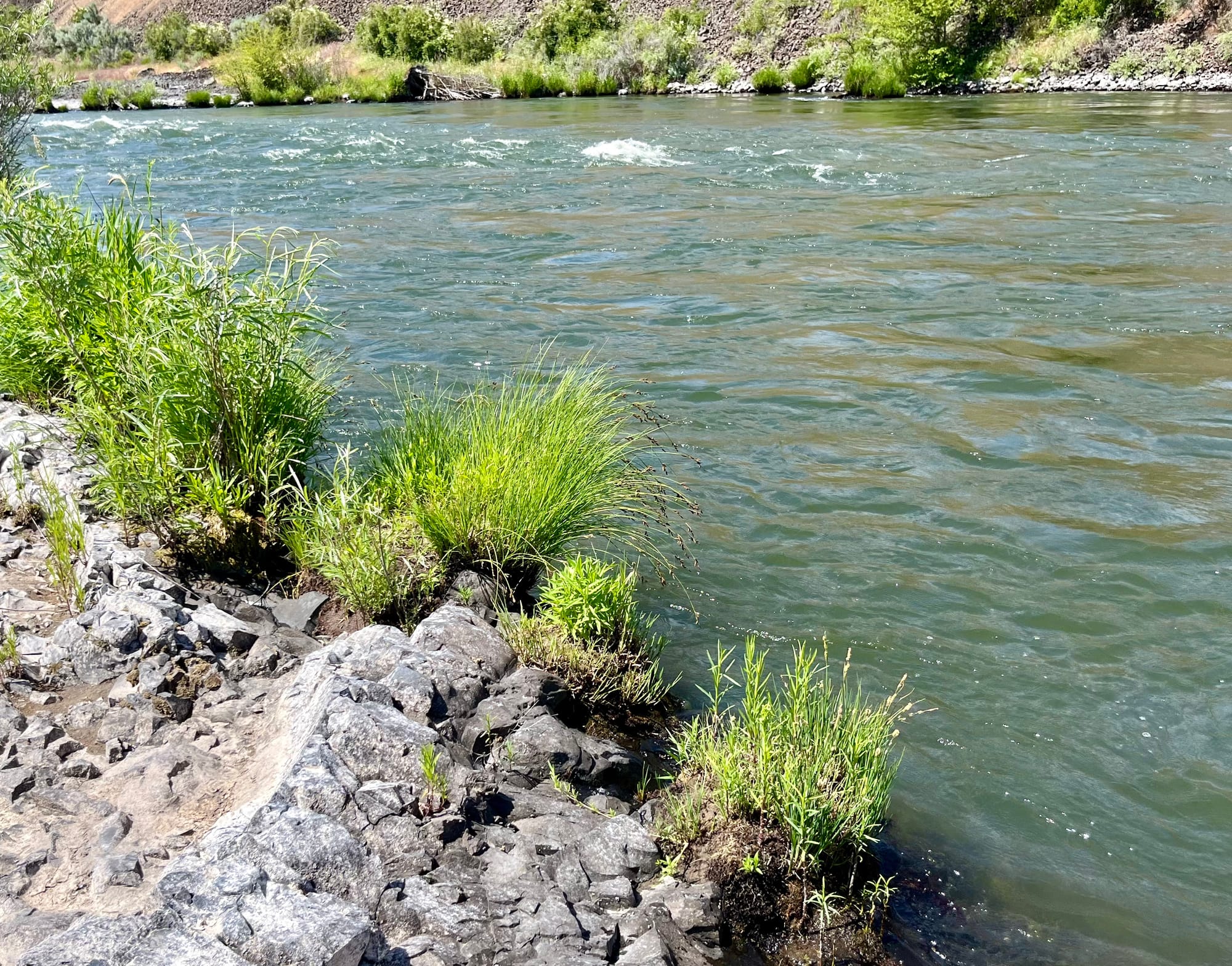
The Tuft
The river in this section is right against the basalt, the chunky geometries pushing out into its flow, two states of matter in opposition. Vegetation, which still holds clumps of stoneflies a week or so past the hatch's peak, is sparse.
I decided to run my nymph along this slot above a few times. I cast twice, progressively closer, until I was able to dial in the third cast and run the drift just an inch or two off the rock, brushing back the overhanging grass.
And then, the largest redside I've ever seen on the Deschutes flashed on my orange indicator, turning up and tracking it for a heartbeat down the river, ready to maw, before sinking into the depths.
My heart stopped. What an idiotic blunder. Of course there was a giant fish there. When it started beating again, I shouted an expletive. What I felt my skull was full of. How could I have walked in underprepared? Seeing every inch of this easily 24" fish from only six feet away left me flabbergasted.
Below the tuft there's an overhang, offering perfect shade and cover from predators until the morning sun flashes past midday. A fish can relax and wait for what comes along. A large fish can push its smaller cousins out of the area and enjoy the spoils solo. The small orange indicator resembled a salmonfly, the only surface-eat you'll ever get out of a big redside on the Deschutes.
Even better, the basalt doesn't transmit sound and movement like more squishy banks on the Deschutes, so I had been able to walk right up to this whopper without spooking it.
Redemption shot
Earlier that morning, when we were talking to our neighbor at camp who'd never fished the Deschutes before, she said she was worried about how big the river was. I had made one suggestion, cautious not to mansplain:
The number one rule on the Deschutes: You don't need to cast far. The biggest fish are right off the bank.
I'd stepped in it, incredibly predictably. Jinxed myself.
After I stopped shaking and muttering oaths, hopium flooded my veins. The fish hadn't actually been spooked out of the lie. I'd immediately left it alone to pout. I might get another shot.
So I waited. Twenty long minutes. Sat down in the shade tent. Offered my inner child a juice box. Swapped the nymph rod for the six weight and tied on the biggest orange and black salmonfly dry I had in my box. If an indicator had moved this fish, something more natural-looking surely would.
I sat calmly, while the sun moved across the sky, shrinking fish's shady hiding place. I pinched down my barb (the kids were playing just outside of backcast range), checked the leader for the third time, and tightened my drag. I hadn't brought a net (excuse...seven?) and so I asked my buddy to stay close to possibly back me up.
The fish wasn't under The Tuft. It was about six feet up. I moved it again on my fifth cast. Leaning out over the lowest grass, tucking the fly in close to the vegetation, the same fish rose and swirled around the fly, immediately pulling onto the reel and the drag.
I fought it for about ten seconds, rod elevated, ready to go as long as I needed, but the second I yelled "NET!" over my shoulder I felt a brutal series of head-shakes and the line went loose. I needed to sit down. This time my inner child needed a pizza party with a magician, and a down payment on therapy.
Attitude adjustment
I don't fish just to catch fish, but missing two shots at the same fish—one that would have easily been a personal best, with witnesses including my daughter—was upsetting. I was given a gift, had a chance at redemption, and blew it.
In each of the big phases of tactical fly fishing (find the fish, hook the fish, land the fish) there's a series of re-calibrations you have to do. Sometimes you have to move through them quickly. As you fish more, they become engrained, and you don't need to be conscious of them. But at every stage you have the chance to spook, miss, or lose the fish.
In this case, some visioning would have helped:
- What do I expect to happen?
- How might things go wrong?
- What does success look like?
When I initially moved from the deep trough around the corner, I could have re-calibrated and switched to the dry fly rod. Tried to see, with that fishy x-ray vision, where the fish might be. Visualize the slow, heavy take of a fish with volume and power. Remember that sometimes it's best to let the fish have some line to begin with, and not try to horse it too hard. Either way, humility is a healthy lesson to continuously re-learn.
After a good hard sulk, I worked up the river from that corner a little more. I caught a desultory consolation prize rainbow, then stopped for an early lunch. My daughter told me about her sand structures. We decided there might be fish some fish to catch in the little slough. She wanted to try, so we tied a size 22 zebra midge onto her little 7.5' 3wt. I showed her how to cast it out into the deeper stretch and let the indicator pull the fly through.
Ten minutes later, she had her first fish on the fly, a fat-bellied little northern pike minnow. She was stoked. The next day she used the same technique to catch a tiny rainbow, her first trout. This time casting for herself, in a faster section.
I hope she'll find something in this sport like I have: a sense of connection and opportunity. An understanding of how failure is the engine of creativity. A drive to pick it up and try again.

Events
June is Women's Fly Fishing Month, according to Fly Fishers International. FFI listed a plethora of ways to get involved including a campout here in Oregon on the Metolius from June 17-22. Get involved!
Upcoming classes
Classes for Portland Community College's summer term went live last week. The Fly Fishing Outing for experienced students / Intro graduates is already full. There's one spot left in the Intro to Fly Fishing course, so hop in if you're interested.
You can find more info on classes here. Spread the word if you know anyone who should take either course.
🚧 New on CFS
Nothing this week. I'm in the final phases of preparing the Clackamas watershed outing material, and hope to adapt some of that here, perhaps into a series around scouting, and finding the best places to go fishing.
Sound interesting? Hit the "more like this" feedback button in the footer. Or, you can send me a reply to let know what you're interested in.
What sort of material would bring more meaning to your fishing?
Fishing reports
- Central Oregon seems to be lighting up, via The Fly Fisher's Place in Sisters
- Next weekend's free in Washington. Why not take someone fishing? Washington Department of Fish and Wildlife June Weekender report
One more cast
NBA legend and cultural force Bill Walton has died. This Times profile from a couple years ago contains much profundity, including this lovely exchange:
One of the best conversations Walton and I had during our two days together consisted entirely of listing the rivers in Oregon.
“Willamette River,” I said, speculatively.
“Willamette River,” he confirmed. And then he added: “McKenzie River.”
“McKenzie River,” I said.
“Santiam River,” he said.
“Columbia River,” I said.
“Nestucca River,” he said, gaining momentum. “Little Nestucca River.”
“Illinois River,” I said.
“Metolius River,” he said. “John Day River. Deschutes River.”
After a while, I realized that this was not just a verbal tic but actually something profound, another way that Walton manages to wrench himself out of everyday reality and into the sacred flow — these vast lists allow him to create his own company, his own surroundings, no matter where his injured body happens to be. It is proper nouns as virtual reality.


